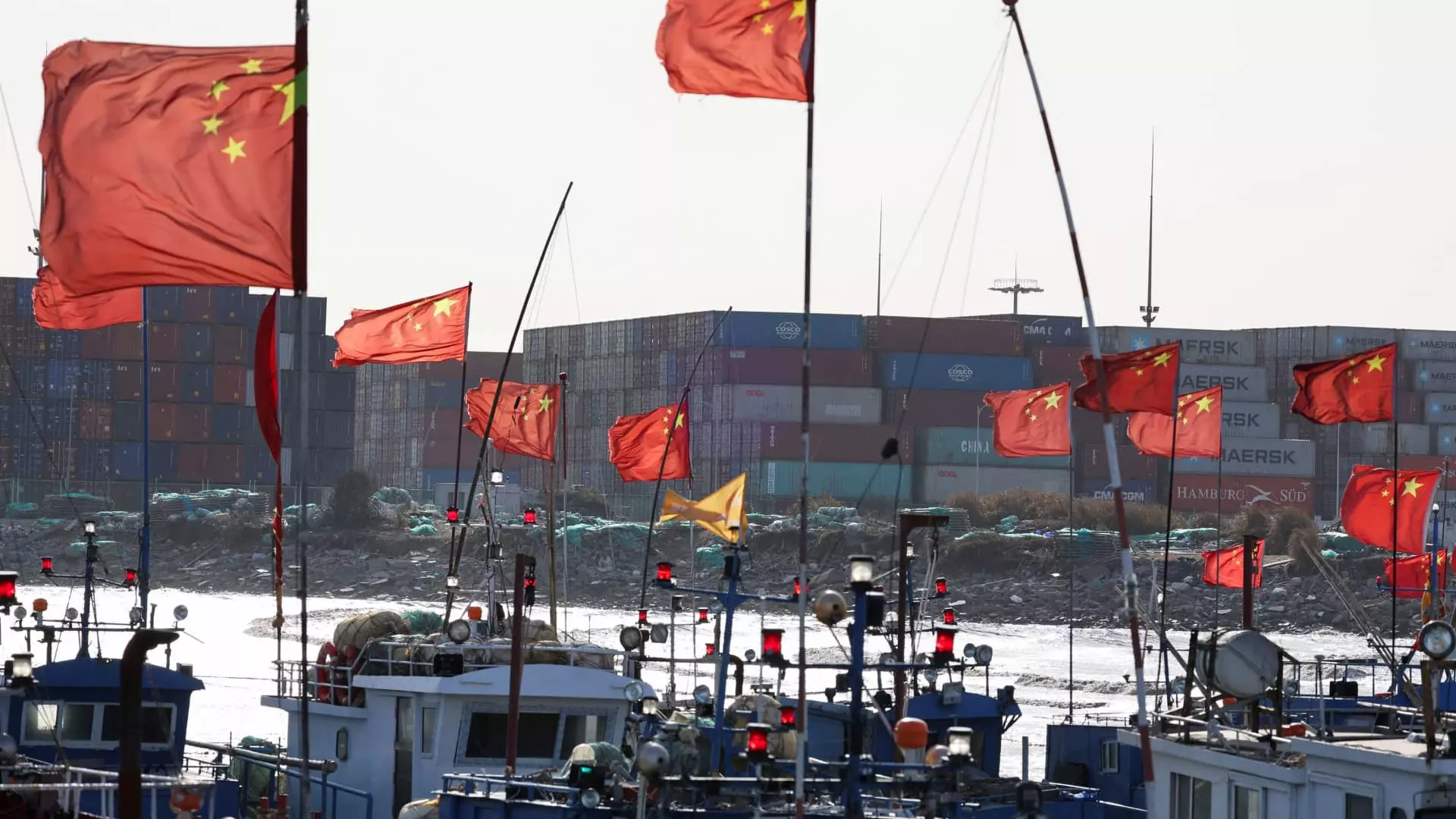In a dramatic escalation of tensions, China’s response to the recent condemnation by the G-7 regarding its maritime practices revealed not only its diplomatic belligerence but also an alarming tendency to dismiss global concerns about its actions. Describing the G-7’s criticisms as “filled with arrogance, prejudice, and malicious intentions,” the Chinese government showcased its penchant for inflammatory rhetoric, a behavior that seems to be increasing in frequency and intensity. This diplomatic language, saturated with hyperbole, signifies a dangerous reluctance to acknowledge the increasingly precarious nature of its military undertakings in contested waters.
What stands out about China’s rebuttal is its stubborn refusal to engage with the core issues raised by the G-7, focusing instead on deflecting blame. The inability—or unwillingness—to acknowledge its own provocative behavior, such as land reclamation or militarization of territories in the South China Sea, raises profound questions about the country’s trajectory on the global stage. Such responses are not merely dismissive; they highlight a broader strategic blindness that could have disastrous implications both for China’s neighbors and for global maritime safety.
Destabilizing Maritime Operations
This month’s statement from the G-7 did not mince words when it came to addressing China’s “illicit, provocative, coercive and dangerous actions.” The description of these maneuvers as destabilizing reflects a growing international consensus: China’s increasing militarization of the South China Sea and aggressive posturing concerning Taiwan pose a legitimate threat to regional stability. The reality is that these waters are critical, facilitating around $5 trillion in global trade; thus, any disruption could send shockwaves through international markets.
China’s rejection of international rulings—such as that from a U.N.-affiliated tribunal that invalidated many of its claims—demonstrates an alarming disregard for established international norms. This behavior emboldens nationalistic fervor but does not change the fundamental dynamics: other nations, particularly those like the Philippines that are geographically closer to these waterways, cannot accept China’s assertions without serious political and economic consequences. The G-7’s insistence on maintaining peace and stability in this region is not merely rhetoric; it stems from a critical assessment of how aggressive Chinese maritime operations endanger not just regional but global security.
The Taiwan Strait Crisis
Central to this discussion is the Taiwan Strait, where tensions have escalated to alarming levels. The ongoing military drills and intrusions into Taiwan’s airspace and waters have sparked justified concerns among neighboring states and have forced them to reconsider their security strategies in an era where unilateral force seems to be increasingly normalized by Beijing. The G-7’s emphasis on the importance of stability across this critical waterway illustrates how China’s actions are perceived internationally: as aggressive and potentially expansionist.
The international community must consider the dire implications of an emboldened China willing to assert its claims over Taiwan, no matter the costs. Such actions not only jeopardize Taiwan’s existence but also pose existential challenges to the global order built around mutual respect and cooperation.
A Global Response is Imperative
Given the scale of the threat posed by China’s aggressive maneuvers, a unified and action-oriented global stance is necessary. Although the G-7 is not without its flaws, it represents a collective voice that can challenge China’s narrative, framing its actions in clear terms of aggression and risk to global security. Failing to address these behaviors through a cohesive front gives China not only political cover but also tacit approval to continue its course of confrontation.
China’s naval expansion, heralded by its three aircraft carriers and ongoing military enhancements, should catalyze debate regarding our future maritime policies and defenses—not only in the Indo-Pacific but across all oceans. Without a concerted effort to counterbalance its increasing assertiveness, we risk opening a Pandora’s box of geopolitical instability, one that echoes potential conflicts reminiscent of history’s darkest chapters.
The eroding of international norms and the specter of high-stakes naval conflict loom large. The world must stay vigilant; failure to address these aggressive behaviors will only exacerbate tensions and could lead to catastrophic outcomes. In this climate, the question remains: how will the global community respond to an increasingly unpredictable and domineering China?


Leave a Reply